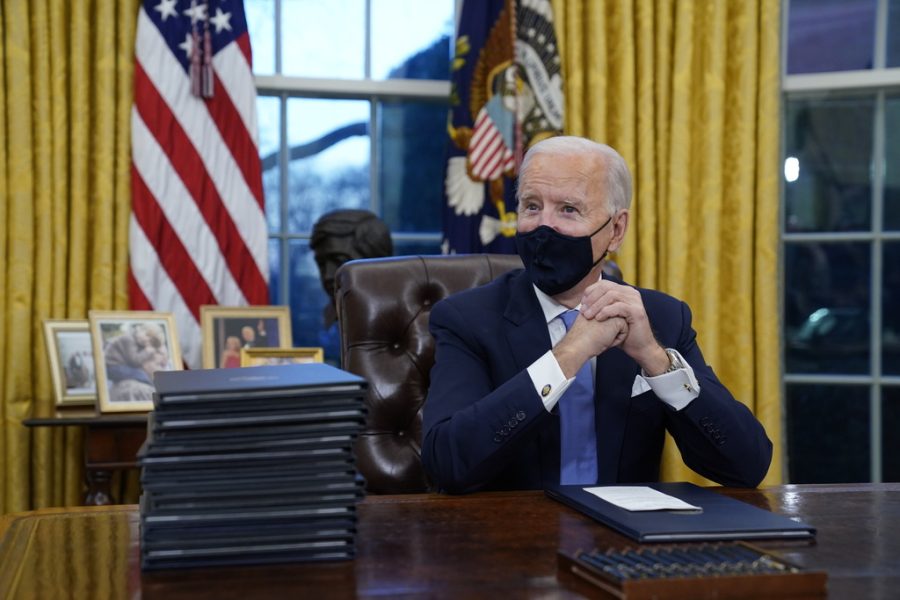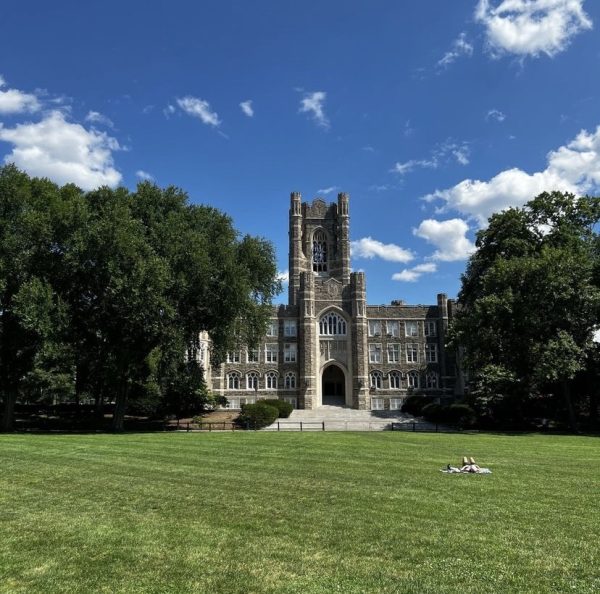Biden’s Vaccine Mandate Exposes American Partisanship
As if President Biden was not already struggling to navigate the murky waters of his presidency, his upcoming mandate will further cast a shadow of uncertainty over his administration. The mandate in question will require all businesses with at least 100 employees to require its workers to get vaccinated or submit to weekly COVID-19 testing. The legislation has elicited sharp criticism from many federal workers who feel the policy provides no “middle ground” to the unvaccinated. Many others are left in a state of confusion over one number the specificity of this minimum requirement, similar to those confused by the need for a vaccine mandate in the first place.
Although this threshold covers about 80 million people in the nation’s workforce, Biden’s team refused to clarify their logic behind choosing this seemingly arbitrary number. However, Biden’s team drew another dividing line between what constitutes a large or small business. This move comes as business owners are already struggling to maintain staff during the pandemic.
The number 100 will inevitably hold a disproportionate influence over businesses. The tensions between small and large businesses will be heightened because not all businesses will be subject to this law. Employees at businesses with under 100 employees won’t be affected by this mandate, while those at larger companies could face losing their jobs if they are not vaccinated. There is a lack of consolidation among vaccine rules from different states; it is becoming increasingly apparent that not all vaccine policies are created equal.
If President Biden truly wants to unite Americans to get vaccinated against COVID-19, he needs to understand that numerous COVID-19 policy discrepancies across America are holding the country back from this goal.
For example, in New York, vaccination for COVID-19 is a prerequisite for the state’s education officials to return to the classroom. Similarly, in California, Governor Newsom is exploring the option of mandating school children get vaccinated, a move likely to be echoed by other states once it is officially passed.
Yet in Florida, Gov. Ron Desantis has been a staunch opponent of federal vaccine mandates, which is certainly reflected in the state’s soaring infection rates. Texas Governor Greg Abbott has also stood in vocal opposition to vaccine mandates, going as far as to slam the Biden administration’s proposed mandate for federal employers.
This clear disparity between state and federal perspectives on vaccine mandates will put unnecessary pressure on already strained businesses, emphasizing economic inequality.
If Biden truly wants to see a bright recovery from the darkest days of the pandemic, COVID-19 policies must become uniform throughout the country. Otherwise, dissonance will ensue.
It is unacceptable to witness New York recover from the pandemic while Florida drowns in it simply due to the two states’ very different methods of handling the pandemic.
Our country has reached the bleak new milestone of 700,000 deaths due to COVID-19. We must not allow any open window of opportunity for the virus to spread, especially as the more contagious delta variant continues to make rounds. To close this window, there should be no variation in how the federal government implements COVID-19 policies among states.
The separation of state and federal power has been the root of conflict since the nascent stages of our country, but this is different. In 2020, America’s population, economy and political structure were torn asunder in the midst of the global pandemic.
With vaccines, we now have a heightened understanding of what it will take to mitigate the effects of the pandemic. This knowledge must not be taken for granted.
If Americans want to return to work without the worry of being laid off, and if they want their children to return to school safely, there needs to be increased bipartisan outreach efforts for vaccination. Standardizing vaccine requirements across every state in this country is a pivotal first step in this process.
There should not be a situation in which vaccine requirements are more relaxed in conservative states than in liberal ones. This creates both economic and moral inequity. This will stifle the recovery progress. This is the last thing Americans need as we near the dreaded second anniversary of placing our lives on pause.
The basis of standardizing these COVID-19 policies aligns with the need to rectify a clear disconnect in our country — partisanship. The United States of America will never be united if only traditionally Democratic states support COVID-19 mask and vaccine mandates. Part of a vaccine outreach effort should be targeted towards these Republican states that continue to resist COVID-19 safety measures publicly.
The logic behind President Biden’s “100 rule” remains ambiguous. However, combating the unnecessary variation in COVID-19 policies nationwide is the only way to ensure our country can be 100% again.
Noah Osborne, FRCH ’23, is a journalism major from Harlem, N.Y.















































































































































































































